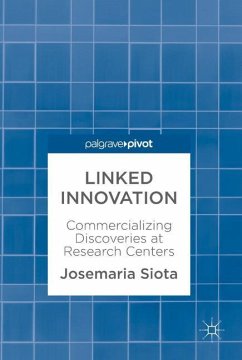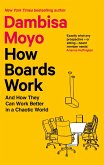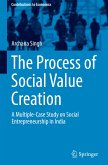Questioning why research centers so often fail to commercialize discoveries, this book explores the concept of linked innovation, which promises to drive economic sustainability while preserving academic quality at research centers. The author examines the gaps in the innovation process and identifies eight symptoms of broken innovation. Providing empirical research into areas such as performance metrics, design thinking, industry collaboration, and innovation ecosystems, this comprehensive study covers 28 mechanisms and 12 business models for driving growth in those centers. Essential reading for managing directors at research institutions and academics, Linked Innovation draws on examples from leading research centers at universities, in industry and government. Based on a four-year analysis of 3,881 centers in 107 countries, the book looks at institutions such as Harvard, Oxford and organizations such as Roche, Google, Fraunhofer and NASA to name a few.
Bitte wählen Sie Ihr Anliegen aus.
Rechnungen
Retourenschein anfordern
Bestellstatus
Storno








